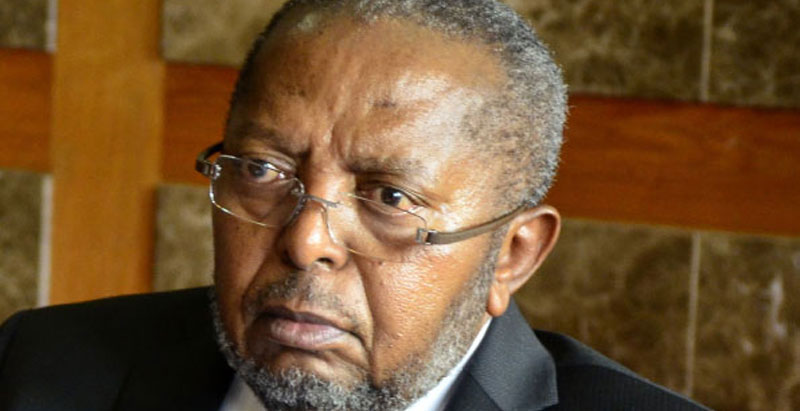Columnists
Wrong time to tax; right time to restructure
The economy is at a point where it cannot afford more taxes and imports. It needs more spending, consumption, and exports – indeed textbook economics!
Economists argue that expectations of the future have major effects on decision-making in the present. Workers’ nominal wage demands, managers’ investment decisions, households’ consumption decisions, and practically every other economic decision we make hinges, in one way or another, on what is expected to happen in the future.
Before Parliament sits next week to debate and have a final decision on the new controversial taxes that they passed last May, let each of the members go to their constituents and ask a simple question: where do you see Uganda heading?
Questions like that should guide people in positions that make decisions that affect others. Economists tell us that expectations depend on many things, but primarily on the policies followed by the government.
I often tell my students that when they leave university and get married they will realise that government has the ability to enter their bedrooms and influence the decisions they make as a couple.
Government is a very powerful entity. It can make people spend sleepless nights devising means of avoiding having many babies (by making child rearing expensive and inescapable using tax).
Government is killing growth
Government can make young people postpone marriage (by providing incentives for delayed marriage such as free higher education and allowances for single women and high taxes for men).
Government can turn irresponsible men into good fathers (by building bigger jails for irresponsible parents who fail to provide for their families or by raising taxes on alcohol and lodges).
Government can also encourage people to spend most of their lives making and rearing babies (by failing to keep girls in school and/or failing to employ the few that graduate or by encouraging men to sire children and abandon them).
Most importantly, government can facilitate or kill growth of the economy using policy. Therefore, whoever gets the opportunity to serve in government (as a Minister, Member of Parliament or Judge of a legal court) should be a person that thinks through the decisions they make beyond commonsense.
Robert Lucas, one of the celebrated economists of policy, argues that changes in economic policy would induce changes in the structure of the economy and its patterns of behaviour.
Recently, well educated men and women sat in cabinet room at State House in Entebbe, and later at Parliamentary Chambers in Kampala and decided to stop the economy from recovering.
The economy was recovering
Although 2018 is perfect timing for the politicians to raise taxes given that it is off the political season, it is wrong timing for economics. First, for the first time since 2012, the economy has been on a steady recovery trajectory.
Economic activity had started to pick up, with household consumption which is the main determinant of aggregate demand rising, and the GDP growing across all sectors – agriculture, industry and services.
Agriculture growth has recovered from -0.4% in March 2017 to 6.1% in March 2018. Services have recovered from 4.5% to 8.1% during the same period, while industrial growth accelerated to 6.8%.
Overall, the economy expanded by 5.8% in FY 2017/18, 1.9 percentage points higher than the growth of 3.9% percent registered in FY 2016/17. As a result inflation had been arrested (now at 2.2%) from over 6.3% around the same time last year.
Where did the recovery come from? The main contributor to it was God. He brought rain that fed agriculture leading to increased output and reduction in food prices.
Stimulate aggregate demand
Bank of Uganda also contributed by easing the monetary policy (reducing the central bank rate to 9% and other interest rates), which has encouraged banks to reduce lending rates and to extend credit to borrowers.
I have personally been approached, on several occasions, by banks begging me to borrow at 16.7%. This is a first in my life time. So, why would anyone, let alone a President, a Minister or an MP want to stop this good news?
Why would anyone fail to see that raising taxes at this point in time will be counter productive to growth stimulation and the accommodative monetary policy that the BoU has adopted?
Everywhere else recovery in growth is supported by more accommodative fiscal policy – reducing taxes and increasing spending in areas that stimulate aggregate demand to encourage the economy to expand more.
Secondly, the latest Uganda National Household Survey of 2016/17—one of the main source of reality about Uganda after the census—which was released last year by UBOS, showed that the proportion of Ugandans living in poverty has increased to 21.4% (8 million people), up from 19.7% in 2012/13.
The survey also indicated that the median monthly wage earned by a ‘typical Ugandan’ (the Ugandan who represents majority of other Ugandans) is about UGX 168,000. For rural folks it is even lower – UGX 120,000. Yet the average household monthly expenditure was found at UGX 351,600 (up from UGX 328,200 in 2012/13).
Same group taxed again & again!
The implication of these figures is that the median Ugandan is financially worse off than he/she was in 2013. This is understandable given the slow rate at which the economy has been growing, yet population growth has stayed at 3% per year.
Therefore, with those figures in mind, how can anyone raise taxes on Ugandans at this point in time? How can one fail to see that tax will wipe out people’s disposable income and reduce aggregate demand for moving goods and services?
Already Ugandans being targeted by the new taxes pay many other taxes and levies such as market dues and trading licenses. A close scrutiny of most of the new taxes shows that their incidence or burden largely falls on the same group of people.
The group that pays pay-as-you-earn (PAYE), excise duties (on consumables), withholding taxes, local service tax, fees and licenses, garbage collection and security (for Kampala, Mukono & Wakiso residents), etc. is the one that is going to pay social media tax and mobile money tax.
Yet the above mentioned group is not the one that enjoys free government services such as UPE & USE, free healthcare, free agricultural inputs (under OWC), free mosquito nets etc. These free public goods and services are going to people in subsistence agriculture and other activities that are outside the tax bracket.
Statistics indicate that less than 10% of taxpayers in Uganda pay 75% of the total tax. The policy makers who design taxes and our legislators should invest in finding practical and less controversial ways of expanding the tax base by bringing the millions of Ugandans who receive free services from government and others who avoid tax into the tax bracket.
We need a “National Listening Day”
The social media and mobile money taxes are not expanding the tax base. They are going for the group that already has been paying. To widen the tax base, government should introduce tax on agricultural income.
Farmers, particularly those in the livestock (dairy and beef) sub-sector that make money should pay tax. But even this extension of tax base should happen in the future when the economy has recovered. Not now. Now we need to facilitate economic recovery, by either leaving the taxes as they were last year or preferably reducing them.
One may ask: how do you expect government to spend without taxing yet the national debt has increased ruling out the option of borrowing? Well, the best option right now is to restructure government to reduce wasteful expenditure.
We recently made a calculation and established that if government restructured, it would save nearly a trillion shilling per year. This is far higher than the Shs. 717 billion government expects to collect from all the new taxes.
The truth is, no amount of tax revenue will be enough to finance the magnitude of fiscal indiscipline going on in government. The real cost of running government must be reduced if Uganda is to achieve its economic goals.
Increased avoidable spending has become burdensome to the poor and the unemployed. Despite, persistent growth in net URA collections over the last decade — rising from Shs. 3.1 trillion in 2008 to Shs. 14.5 trillion this year — budget deficit has kept on rising. Why? The appetite for spending is rising at a much faster pace than the increase in revenue.
Now with ‘forced expenditures’ such as escort security vehicles for MPs, fiscal distress is going to hit the roof. Although some of us may want to appreciate the vulnerability of VIPs, given the security threats imposed by recent assassinations, buying escort vehicles for 456 MPs looks ugly (even when one just thinks about it), unwise (what if they shoot other categories of VIPs), visibly scandalous (so many military escorts in town), and insensitive to people’s plight (the women who are being murdered and the hundreds who die every day out of simple, avoidable ailments).
Mr. President, how did we get here? We got here when we stopped listening to what people say and listened to ourselves. Mr. President, one virtue you used to have (and uncommon among powerful people) was listening. Most of the images I see were taken when you were listening to someone — often to ordinary Ugandans.
These days, most of your photos are showing you while lecturing. Lecturing to your cabinet, lecturing to parliament, lecturing to the wananchi you meet on the roadside; and even lecturing to your advisors.
Mr. President you need to retrace your listening credentials. Listen to what Ugandans at all levels are saying. They are not making noise or lugambo, they are communicating to you. We may even replace the many public holidays with only one a “National Listening Day.” The Americans have one by the way.
Comments

























